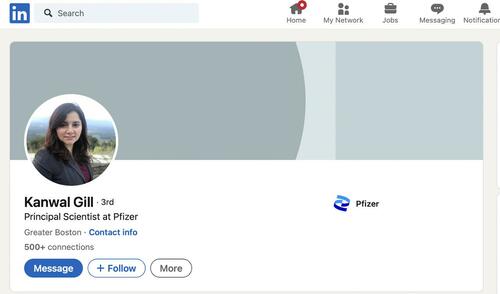Authored by Victor Davis Hanson via AmGreatness.com,
Of the last three presidents, Trump was either the most indifferent or the most obstructed when it came to using government agencies for his own partisan political advantages or to neuter his enemies.
For the Left, Donald Trump is synonymous with “fascism” (or “semi-fascism,” as Joe Biden put it the other day). And for Liz Cheney and most of the NeverTrumpers, he remains an existential threat to democracy.
But to quantify those charges, what exactly has Trump done extralegally - as opposed to his bombast and braggadocio about what he might have wished to have done?
And what are the standards by which to judge this supposed menace?
Did Trump illegally and with a mere signature nullify over $300 billion of contracted student loans—to firm up his college-student and college-graduate base nine weeks before the midterm elections?
Did Donald Trump weaponize the feared IRS, the logical place to find fascistic tendencies of any president bent on using government to punish his enemies? Did he push through a plan to add 87,000 new IRS investigative agents at a time of national discord?
For the last five years, Trump was rumored to be under investigation by the IRS. Currently, his accountant is facing felony sentencing for advising improper write-offs.
Certainly, from the contents of Hunter Biden’s laptop and the remarks of Hunter’s associates like Tony Bobulinksi, the Biden family raked in millions of foreign dollars. Evidence so far suggests Joe Biden was a recipient (as the “Big Guy”) of 10 percent of these quid pro quo payments. At times, Bobulinksi may have sent a strapped and broke Hunter thousands of dollars in cash gifts. Were any of these stealthy transactions taxed? Does the recently heavily Biden-endowed IRS care?
If Trump wished to abuse his power over the IRS, he would have followed the Obama model of weaponizing it during a reelection year to go after his ideological enemies.
In Obama’s case, the tax agency slow-walked or denied nonprofit status for groups whose ideology was deemed not helpful to Obama’s campaign in 2012. There was a reason Lois Lerner invoked the Fifth Amendment, and it was not to protect Donald Trump.
Politicized National Security
Did Trump blatantly use the national security apparatus of the government to enhance his own reelection bid in 2020?
That is, did he do anything analogous to Obama’s gambit with Vladimir Putin in 2011?
Was Trump ever caught on a hot mic promising a Russian president that he would try to ease Russian worries about Eastern European missile defense if only the Russians would give him space during his 2012 campaign for president against Mitt Romney?
What we forget about the 2011 Seoul, South Korea hot-mic Obama exchange with then-Russian President Dmitry Medvedev was that all the conditions outlined in their hushed 2011 recap were adhered to by both parties: Obama did dismantle plans for a joint U.S.-Eastern European long-range missile defense—a system that might be now of advantage to the U.S. and its allies. Putin did stay quiet during the Obama campaign cycle. Obama did get reelected. And Putin did invade Ukraine and Crimea only after Obama was elected (or, a cynic might put it, because Obama was reelected).
A current Trump “collusion” critic, mutatis mutandis, might have surmised that a colluding Barack Obama put the national security of the United States and its allies at risk in order to use his office to massage campaign advantages over Mitt Romney in 2012. And the ultimate result of such machinations was a loss of U.S. deterrence that in part explained Russian aggression in 2014.
Weaponizing Justice
Did Trump weaponize the FBI? That is, did the FBI go after journalists, former Obama officials, or Democratic Party activists who variously were attacking Don Jr. or Ivanka on the pretenses of retrieving one of their lost laptops or diaries?
Did Trump use Republican National Committee firewalls to transfer money to private lobbyists and law firms to find dirt on Hillary Clinton in 2016, and then turn it all over to the FBI to launch a Crossfire Hurricane investigation of Clinton, centered around a Trump-hired ex-spy who became a paid FBI informant?
Are there texts of Trump-era FBI agents talking about how to “stop” Hillary Clinton’s or Biden’s election bid?
Did Trump’s FBI, in the predawn hours, burst into the homes of New York Times reporters—in James O’Keefe -style—and march them outside in their underwear, all for the possible “crime” of receiving a stolen draft of the Supreme Court early draft of the Dobbs decision? Which is the greater “crime”—trafficking in clearly stolen confidential Supreme Court papers or looking at the abandoned, lost, and lurid diary of a wayward presidential daughter?
Did the Trump Justice Department start an investigation of the suspected illegal lobbying of Joe Biden and Hunter Biden, who used the former’s political connections to win large cash payments from foreign governments? Were there Trump officials in the permanent Justice Department who went after his various political opponents on the pretexts of the Logan Act? Or did the Trump Administration help spread the allegations of any hired anti-Clinton ex-spies and salt them around the bureaucracies?
Speaking of Trump and threats to the democratic order, did any Trump attorney general refuse a congressional subpoena, as former Attorney General Eric Holder did? Was anyone held in contempt of Congress, as Holder was? Did any simply refuse to honor subpoenas and withhold requested documents from Congress, as the Obama Administration did time and again?
Did Trump order an FBI raid on the Obama home, on rumors that there were thousands of documents under dispute with the National Archives in his possession, especially given the Obama record of fiercely fighting any Freedom of Information Act lawsuits to release his documents?
Was a John Podesta put in leg irons by the FBI? Was Robbie Mook’s house stormed to learn of what he knew about Hillary Clinton’s missing emails?
Was Jake Sullivan’s phone grabbed by the FBI at an airport to determine his role in the Russian collusion hoax?
Or, with a look ahead to his own reelection, did Trump in 2018 order a raid on the Biden home, in search of “lost” Biden vice presidential documents, supposedly improperly removed after Biden’s tenure that might have shed light on the Biden family’s extracurricular foreign lobbying?
Where Is Trump’s Deep State?
Are there now any former Trump loyalists who, as “anonymous” officials in cabinet agencies or obstructionists on the National Security Council, are writing op-eds about their stealthy daily efforts to undermine Biden’s executive orders or his administration’s action?
Is anyone listening to Biden’s phone calls with foreign leaders while working with Republicans on the House Intelligence Committee and while prepping a “whistleblower” to find grounds for impeachment based on some of the things Biden has allegedly said to foreign leaders?
Did Pfizer rush prematurely to announce a viable COVID-19 vaccination to aid Trump’s reelection—or in contrast, did it slow walk a viable vaccination’s rollout until after the election to massage the result?
Are there now “50 former intelligence officials” who signed affidavits in support of Trump’s allegations about the authenticity of Hunter’s laptop? Are there dozens of retired four-stars now opportunely blasting Joe Biden’s historic humiliation of the United States in Kabul? Have any retired admirals mocked the Uniform Code of Military Justice to write New York Times op-eds suggesting a befuddled Biden leave office “the sooner, the better”?
Are there former Trump officials writing in Foreign Policy that Biden is a disaster who could be removed by impeachment or the 25th Amendment—or more rapidly by a military coup? Are retired officers writing to General Mark Milley urging him to act should he feel in the next election that a likely Republican loss seems suspicious?
Election Interference and Denial?
Between 2017 and 2020, did Trump’s team systematically seek to change the voting laws in key states to radically transform traditional balloting, in a mail-in or early voting revolution, in which only 30 percent of the electorate would vote on Election Day?
If Trump improperly questioned the ballot result of the 2020 election, then he sinned in the long tradition of presidential ballot objectors, including former U.S. Senator Barbara Boxer (D-Calif.), January 6 committee chairman himself Bennie Thompson (D-Miss.), and Hillary Clinton, who claimed Trump was an illegitimately elected president and advised Biden not to concede if he lost the 2020 popular vote. A defeated Stacey Abrams toured the country claiming she was the “real” governor of Georgia, yet nobody smears her as an “election truther.”
Was there any “dark money” effort analogous to the efforts of corporate and tech money along with DNC activists and Biden operators in what Time magazine’s Molly Ball described as a “conspiracy” to ensure the defeat of Trump’s opponent?
Did Trump’s team coordinate with right-wing billionaires to infuse hundreds of billions of dollars to modulate street protests, to absorb the work of state and local registrars in key precincts, and to censor unfavorable stories on social media?
Trump impotently railed and bayed to the wind about the “fake news” reporters at his rallies. By contrast, the Left, both private elites and public officials, kept quiet and injected half a billion dollars to alter the way people voted and effectively to censor the way people produced and consumed the news.
Restoring Our Norms?
How about Trump’s efforts to revolutionize the very system of government? Did he promote a court-packing scheme to ensure he might not just get a 5-4 majority, but perhaps an 11-4 conservative advantage in a new 15-justice Supreme Court?
Did he keep mum while right-wing demonstrators swarmed the homes of Justices Sonia Sotomayor and Elena Kagan? Did his attorney general ignore the obvious felonies involved in such threatening tactics? Did Trump work with his Republican Congress in 2017 to end the filibuster to ensure his legislation would not be stonewalled? Did he dream up ways of getting rid of the Electoral College so the “blue wall” might never return?
It’s alleged that Trump was insincere when he approved the request for thousands of federal troops to be available to local law enforcement on January 6, or that he did not really mean it when he instructed pro-Trump demonstrators on January 6 to “Peacefully and patriotically march to the Capitol.”
Perhaps even the hint of encouraging any type of protest was reckless in such partisan times. But just days after violent protestors attacked Secret Service agents manning barricades and had sought to storm onto the White House grounds, did Trump boast to the nation of the ongoing demonstrations, as did Kamala Harris, soon to be a vice presidential candidate?
They’re not going to stop. And everyone beware, because they’re not going to stop. They’re not going to stop before Election Day in November, and they’re not going to stop after Election Day. And that should be—everyone should take note of that, on both levels, that they’re not going to let up, and they should not, and we should not.
Was that a sober or insurrectionary thing to advise in a summer of rioting that saw 120 days of violence, $2 billion in damage, 35 dead, and hundreds of police officers injured?
Did Trump as president meet with CIA and FBI directors who, in their weekly and daily briefings, apprised him of efforts to monitor, spy, and infiltrate the campaign of Joe Biden?
Was there, after 2017, a Republican majority committee investigating the former Obama role in launching Operation Crossfire Hurricane, or Attorney General Loretta Lynch’s secret meeting with Bill Clinton while she was investigating Hillary Clinton? And if there were, would Obama loyalists in the House be excluded by the Republican speaker from participating in House investigations that also would allow no hostile or even neutral witnesses, no general counsel’s report, and no cross-examinations?
The strange thing about Trump was that he did not use extraordinary powers to investigate anyone unlawfully. He boasted, he railed, he screamed, he whined, he became at times crude and obnoxious. But he did not use the FBI, the CIA, the Justice Department, or the IRS to go after the Obamas, the Clintons, or the Bidens.
Instead, he became the most investigated, probed, smeared, and autopsied president in modern history. Trump’s legislative agenda did not include revolutionary changes in the Electoral College or the filibuster, or radical changes to the Supreme Court.
In fact, of the last three presidents, Trump was either the most inept or indifferent, or the most obstructed concerning any issue of using government agencies for his own partisan political advantages or to neuter his enemies.
In truth, the entire apparatus of permanent government—the Pentagon hierarchy, the Washington elites at the FBI and CIA, the permanently entrenched at the Justice Department, and the apparat at the IRS all despised Donald Trump. And they did not just hate him but acted on their antipathy by using their powers of government to destroy his campaign in 2016, to undermine his transition, to either obstruct or sabotage his initiatives while president, and to hound him as an ex-president. As ex-felon and FBI lawyer Kevin Clinesmith put it of his own illegal effort to destroy a president, “Viva le [sic] resistance.” Is that the sort of FBI we want—a cadre of self-described revolutionaries?
Donald Trump was impeached for raising the question of Biden family corruption in Ukraine with the Ukrainian president and delaying offensive military aid that had never been approved by a Democratic president.
Evidence since Trump’s impeachment suggests he was prescient in his warning to the Kyiv government to stay out of domestic American politics. Everything thing we know since that 2021 impeachment vote solidifies—not contradicts—Trump’s point that the Biden family was corrupt, and Hunter Biden was receiving large sums of money from Ukraine and China solely because Joe Biden had been vice president and was seen as a possible or even likely future president worthy of such corrupt investment. Or to put it another way, why would those with contacts with the Ukrainian government ever pay millions to an incompetent, drug-addicted miscreant like Hunter Biden, if not for pay-for-play influence?
In that context, Joe Biden’s early boast that he got a Ukrainian attorney general fired, most likely for probing too deeply matters involving his family, gives credence to Trump’s instincts. So does the fact that both Obama and Biden for a time stopped shipments of offensive weapons to Ukraine, while Trump for a time only delayed them but eventually gave them what they wished.
The result of this unprecedented effort to accuse Trump of using government fascistically while fascistically using government to destroy a president is all too clear in the destroyed careers who sought to undermine constitutional government. What John Brennan, James Clapper, Kevin Clinesmith, James Comey, Andrew McCabe, Bruce Ohr, Peter Strzok, Lisa Page, and a host of retired flag officers and intelligence operatives share is not just their venomous antipathy toward an elected president and their efforts rhetorically and often concretely to neuter him, but their subsequent disgrace even among those who once cheered them on.
















































